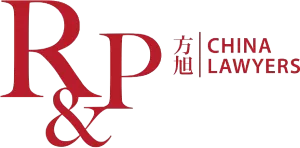- with readers working within the Technology industries
- within Privacy, Tax, Litigation and Mediation & Arbitration topic(s)
- in India
Over the past month, we spent a lot of time supporting a European company to regain control over its subsidiary in Guangzhou. The case: a local employee was the company's legal representative, controlled its stamps and licenses, was the company's contact person for the Administration of Market Regulation (AMR, China's company registry), the tax office and the company's social insurance / housing fund accounts, and had sole access to the company's bank accounts. He was now refusing every instruction of the shareholders, including payment of salaries and supplier invoices, and a handover of his duties to another employee or the shareholder's delegate.
We are often asked about the ideal corporate set-up for a Chinese subsidiary. We usually recommend a good balance between the client's usual approach to these things and ensuring continued control in the face of the potential hazards that so often occur in China.
Shareholder & its Authorized Representative
The shareholder or shareholders' meeting is a company's highest authority. When a foreign investor establishes a subsidiary in China, notarized / authenticated (usually apostilled) documents will need to be submitted to the AMR to confirm the investor's existence and its authorized signatory. Chinese authorities will continue to recognize this authority until new documentation is submitted to show a change – which will be necessary when the registered shareholder's authorized representative leaves the business.
Board of Directors / Executive Director
The next layer of corporate governance is the Board of Directors (of at least 3 directors) or one Executive Director (ED). Their authority is determined in the company's Articles of Association (AoA), and usually pertains to high-level decision-making. Discussion methods and voting procedures are flexible and subject to the stipulations of the AoA. Directors to a Board do not have individual authority to represent the company; they can only do as part of the Board. Their duties are to the company.
General Manager & Senior Management
One of the responsibilities of the Board or ED, is to appoint a General Manager (GM). The law leaves it to the shareholders and Board / ED to determine management authority, in the AoA or other internal documentation and in individual employment contracts. Key is to establish this in writing, so that there is no doubt on liabilities if an individual manager goes beyond her legal capacity. This GM is registered with the AMR as well. Terminating a GM's employment contract does not remove him from the registers, as this requires a separate filing.
Legal Representative
One natural person must be appointed as the Legal Representative, and this person must concurrently be either a Director or the General Manager. The position does not come with any residence or nationality restrictions. The Legal Representative has the legal authority to bind the company with her signature; this signature is also usually needed in case of amendments to the company's registration.
Company Stamps
Every company has a set of stamps (chops, seals), of which the most important is the Company Stamp. This Company Stamp can and usually does replace the signature of the Legal Representative in dealings with government authorities as well as third parties, as so it generally gives its holder the authority to act on behalf of the company. If the Company Stamp is lost or stolen, then the Legal Representative can apply for a new one.
Best Practices for Corporate Governance in China
Back to the question that we started with; how should these positions best be filled to avoid or minimize the risk of problems? Based on many years of resolving corporate governance dilemmas, here are some of our golden rules:
- For the most important position of Legal Representative, appoint someone whose interests and values are most aligned with the shareholder. Often this is a foreign manager in China, or someone from headquarters (HQ). For larger companies in China, the local GM is usually appointed in this position (irrespective of his nationality) because she has full P/L responsibility, and her reputation may well weigh more heavily than short-term gains from abuse.
- Registrations should be kept up to date. If appointees – including the shareholder's authorized representative – leave the organization, then registrations in China should be amended immediately. Signatories should always be available at short notice in case an action is required. Because these administrative procedures take time in China, they are best taken care of without delay.
- Access to the company stamps and business licenses, as well as to bank tokens, the tax system and the company's social insurance / housing fund accounts should be controlled centrally, either by trusted local senior management or by an external service provider to which these functions are outsourced. In case of the latter, make sure that HQ has a direct line to the external service provider in case local management refuses to support (e.g. in case of a dispute with local management).
The situation sketched in our introduction is a worst-case scenario, and even then, we will usually be able to find a solution. But recovery can take many weeks or even months, and in the meantime it is challenging to continue the business and ensure that employees and suppliers are paid. Our advice: make sure that sufficient thought is given to how things are organized, and involve your China advisors for a back-up plan that can be easily implemented in case things go wrong.
The content of this article is intended to provide a general guide to the subject matter. Specialist advice should be sought about your specific circumstances.


